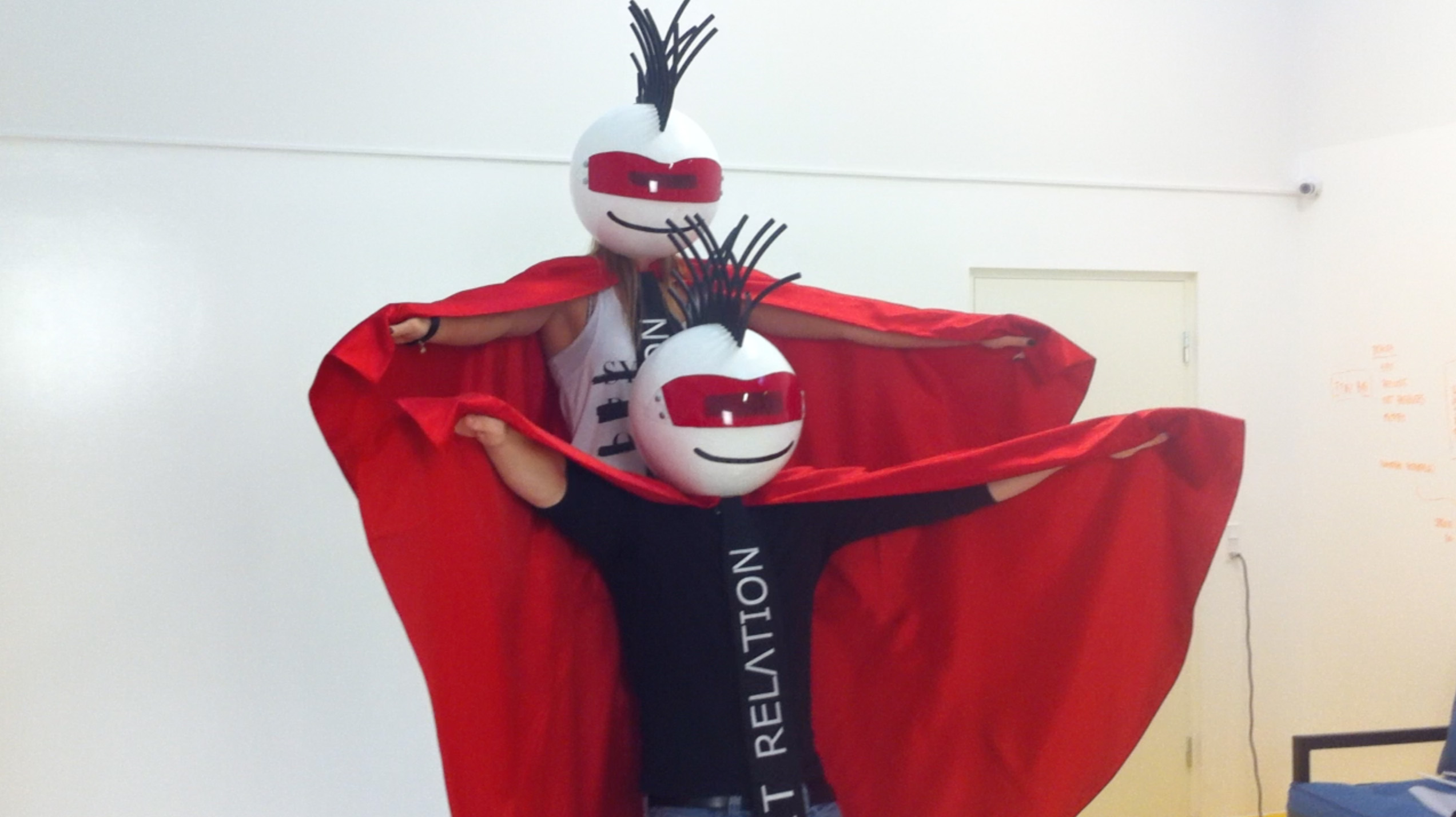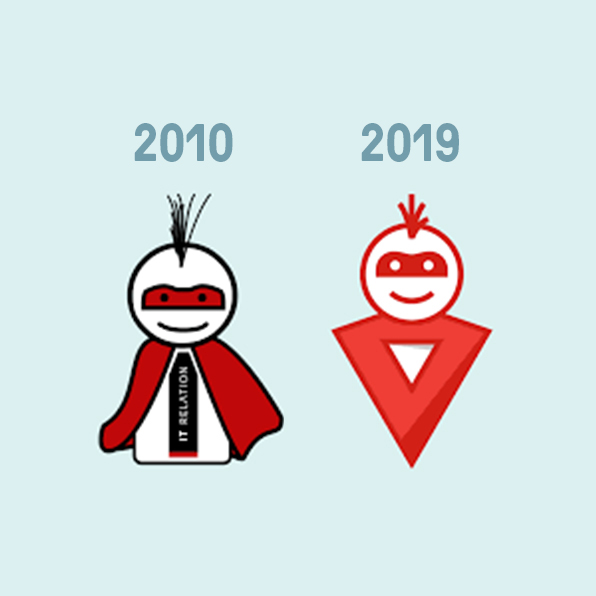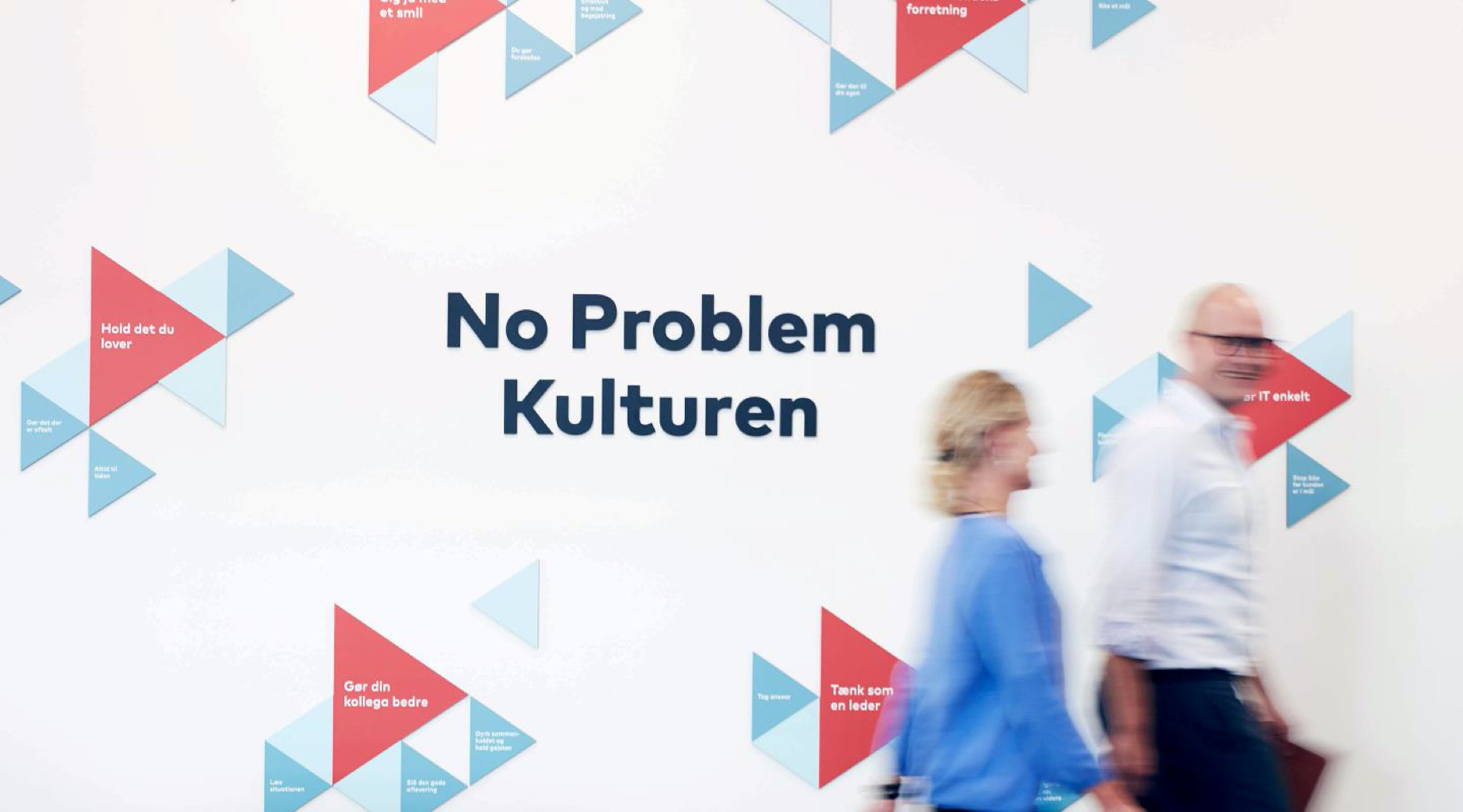The nice brand, which no one has anything against, can’t make a difference for your business.
In January 2011, CEO Henrik Kastbjerg and I introduced IT Relation’s new brand identity as Everyday IT Superheroes.
This marked the beginning of a brand differentiation that has been crucial to the company’s success: from 25 employees in 2011 to over 1,900 employees in 2024.*
* In 2024, the company rebranded from IT Relation to itm8 (m8 = mate), and we are now 1,900 teamm8s on our way into Europe.
Here’s the original “About Us” text from 2011:
"IT Relation is a modern IT support company where employees act as Everyday IT Superheroes. Our helpdesk is staffed with competent, flexible, and friendly IT problem solvers around the clock, seven days a week. ‘No Problem’ is, therefore, our answer to any IT-related challenge. 24/7."
Naturally, IT Relation’s 25 employees didn’t suddenly become more skilled, flexible, or friendly the day after launching Everyday IT Superheroes.
However, the new self-image in the organization quickly led to concepts like 24/7 Servicedesk, IT Rounds (No Cure, No Pay diagnostics), and IT Revolution (Innovation Lab).
There also developed an internal self-discipline where an unsatisfactory effort would be commented on by colleagues as “not very superhero-like.”
Employees in the service desk naturally began and ended every customer conversation with “No Problem.”
Salespeople found it easier to arrange meetings with new clients. Conversations were no longer just about IT tasks but also about IT Relation’s unique culture, with a clear focus on ensuring both Optimal IT Solutions and Ultimate Customer Service.
Recruitment became much easier.
The IT Superhero analogy outshone all other HR departments' career talk by a mile. We didn’t present employee Net Promoter Scores (eNPS) or peakon scores. Instead, we had candidates speak with one of our IT Superheroes, which sealed the deal. Candidates could clearly feel they were joining a workplace where employees were highly satisfied and proud.
It also became easy to secure testimonials from even very reputable companies. IT Relation and Everyday IT Superheroes had become the company people wanted to “play” with.



We even hosted executive groups from relatively large companies for inspiration visits to learn how to develop a unique brand-culture fusion like Everyday IT Superheroes.
Media began to see IT Relation as a compelling story of an innovative, bold, and modern company.
IT Relation went on to win one business award after another and suddenly became a rapidly growing company.
Smile at Your Critics All the Way to the Bank
With IT Relation’s rapid success came a variety of negative comments about the brand and culture:
- “Isn’t it a bit American?”
- “The IT Superhero is a cartoon character.”
- “It’s just branding. They’re no better than any other IT provider.”
- “I’m not an IT Superhero (I have a degree).”
- “I don’t want to be part of that cult.”
- “Customers think No Problem means everything is all-inclusive.”
- “Why can’t we just say we’re good at IT?”
I still remember being a little surprised at first.
We were used to everyone being positive and wholeheartedly supportive of the Everyday IT Superheroes and No Problem culture.
But the growth was so explosive that, at one point, recruitment became less selective, and we inadvertently hired too many employees who saw a career path at IT Relation but didn’t truly see themselves as part of the collective and culture. This took a small toll on confidence and made us a bit uncertain for a brief period until we got back on track, becoming even more aware of the need to protect and nurture our brand differentiation.evidste om at beskytte og dyrke vores brand differentiering.
Differentiation Divides Opinion
It’s important to understand the premise of building a unique brand with enough fans and ambassadors to accelerate a company’s growth: you’ll also acquire a fair share of critics, opponents, and naysayers.
When you choose to stand out from the crowd, there will naturally be many more people who notice and form an opinion of your brand—and they won’t all be positive.
Here are some simple reasons for this:
- Differentiation automatically divides opinion. Not all potential employees and customers are drawn to the brand’s unique identity, culture, and messages. Some are simply attracted to the opposite.
- People are generally more inclined to focus on flaws, so new and different ideas often elicit negative reactions.
Employees may tend toward the familiar because it feels safe, without the risk of facing criticism or ridicule. Many employees will prefer a brand strategy where they resemble one of the top companies in the industry rather than being markedly different—until they realize the unique brand identity and culture is a business success.
Five Practical Tips for Managing Opposition to Your Brand Differentiation
Here are five suggestions for handling negative criticism of your brand differentiation from the board, leadership team, employees, customers, and industry peers.
1. Never Forget That Differentiation Is the Path to Growth
No, there’s no alternative to standing out if you want to drive growth and progress in your business. Indifference is the direct path to invisibility, stagnation, and decline.
2. See Opposition as a Sign of Strong Brand Differentiation
Never fear criticism of your unique brand identity and culture. Instead, view opposition as clear evidence that you’re on track to create the type of brand differentiation that can accelerate business growth.
3. Hire for Matching DNA
Ensure you recruit employees who love your unique identity and culture. Only hire those who are excited by your particular mission and vision.
4. Listen but Never Obey the Critics
Brand differentiation doesn’t mean the company is infallible. Listen to critics to gain insights that can make you even better and more convincing. Never obey those who ask you to be a bit more like other competent companies.
5. Keep Being Creative
Continuously develop new products, service concepts, inspiration, and marketing that create value, meaning, and entertainment for your customers in line with your unique mission. Brand differentiation isn’t something you win and keep forever. It’s something you fight for every single day in the company.
Stay calm when someone from your network mentions that someone “up in the lounge” said something negative about your unique brand.
Simply reply, “The nice brand that no one has anything against? It can’t make any difference for our business.”